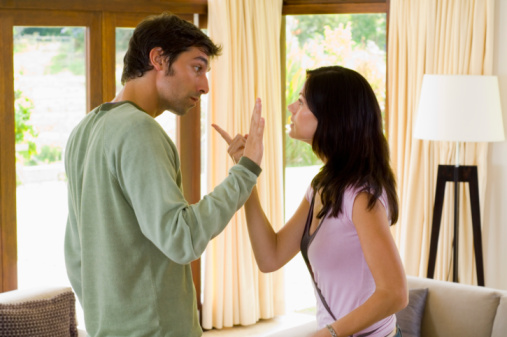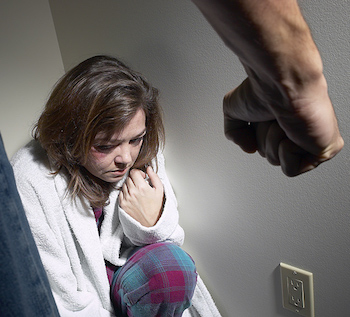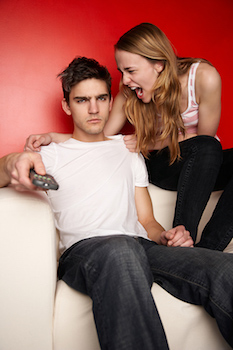Stay Informed
Popular Articles
- Hiatal Hernia: Hidden Cause of Chronic Illness
- Small Intestinal Bacterial Overgrowth (SIBO)
- Applied Lymphology: Unlocking the Secret to Pain Relief
- An Introduction to Constitutional Iridology
- The Low Down on Liver Detoxification
- An Energetic and Emotional Approach to Cancer
- Fat Facts
- Marrow in the Bones
- Blood Type and Nutrition
- Cardiac Herbs: Beyond Hawthorn
Quick Search
The School of Modern Herbal Medicine




Domestic Violence and Gender
- 4/8/2016
- Categorized in: The Herb Guy (Steven Horne)
 I want to write about a topic that many people in our society are blind to because the discussion about domestic violence and partner abuse tends to be very one-sided. Mass media would lead us to believe that violence between men and women tends to be one-sided, with men being primarily the perpetrators and women the victims. This has become such a wide-spread bias that the laws have even been rewritten to favor women in domestic violence disputes through the Duluth model (https://en.wikipedia.org/wiki/Duluth_model)
I want to write about a topic that many people in our society are blind to because the discussion about domestic violence and partner abuse tends to be very one-sided. Mass media would lead us to believe that violence between men and women tends to be one-sided, with men being primarily the perpetrators and women the victims. This has become such a wide-spread bias that the laws have even been rewritten to favor women in domestic violence disputes through the Duluth model (https://en.wikipedia.org/wiki/Duluth_model)
Research done on domestic violence does not support this assertion. For instance, a study published by the CDC (http://www.cdc.gov/mmwr/preview/mmwrhtml/ss6308a1.htm?s_cid=ss6308a1_e) surveying men and women about the previous twelve months found the following results: About 4.0% of women experienced some form of physical violence by an intimate partner, while 4.8% of men had experienced physical violence by an intimate partner. About 14.2% of women experienced some form of psychological aggression, while 18.0% of men experienced some form of psychological aggression
According to this CDC data, out of the estimated 10,226,000 yearly victims of intimate partner violence, 53.3% of victims where male and 46.6% were female. As for psychological aggression, out of the estimated 37,562,000 yearly victims, 54.4% were male and 45.5% were female.  Our typical image of abuse is illustrated in the picture on the right, a man assaulting and injuring an innocent women. However, this data suggests that men are equal victims of both physical and psychological abuse. According to an article in the Huffington Post (http://www.huffingtonpost.com/glenn-sacks/researcher-says-womens-in_b_222746.html), 67% of women in a battered woman’s shelter reported that they had been violent with their male partner during the previous year. This suggests that much of domestic violence is mutual.
Our typical image of abuse is illustrated in the picture on the right, a man assaulting and injuring an innocent women. However, this data suggests that men are equal victims of both physical and psychological abuse. According to an article in the Huffington Post (http://www.huffingtonpost.com/glenn-sacks/researcher-says-womens-in_b_222746.html), 67% of women in a battered woman’s shelter reported that they had been violent with their male partner during the previous year. This suggests that much of domestic violence is mutual.
I learned from a Tumblr blog that someone had compiled a list of 343 scholarly investigations (270 empirical studies and 73 reviews) on the subject and has posted them to a dropbox (https://www.dropbox.com/sh/ivtjidsoveshau6/AADPQ8g7F-7YQV8h12PQ0HA5a?dl=0). One of the studies took the data from 48 other empirical studies, collated it, placed it online for public viewing, submitted it for peer review, and was found to be accurate.
It’s basic findings were: 84% of relationships are non-violent and in 58% of relationships that are violent, both partners abuse the other. In 28% of violent relationships only the woman is violent and in 14% of violent relationships only the man is violent. This means that domestic violence is not a gender-based issue. Men are not naturally violent and women the innocent victims, even though that narrative commonly accepted. Both men and women are equally capable of being abusive and violent. And, in my experience, both male and female victims are in equal need of compassion, support and emotional healing work.
This means that domestic violence is not a gender-based issue. Men are not naturally violent and women the innocent victims, even though that narrative commonly accepted. Both men and women are equally capable of being abusive and violent. And, in my experience, both male and female victims are in equal need of compassion, support and emotional healing work.
For many years I had absorbed the narrative that women were somehow more sweet and noble and innocent than males like me. This was partically reinforced by the emotional healing work I did with so many abused women. It almost made me ashamed of being male. But after having been on the receiving end of domestic violence, and working with more male victims of neglect, abuse and trauma, I realized that neither sex has a monopoly on "victimhood."
I wrote in a blog post about a personal experience with domestic violence, Abuse is Abuse (http://abcherb.tumblr.com/post/138736488583/abuse-is-abuse). I ended it with what I now believe, “Moral principles are universal and apply to all people of all races, religions and sexes.” Jesus claimed that the way we treated the least in society was the way we treated him. If we marginalize certain groups of people by race, religion or sex and claim that a different standard should apply we can justify all kinds of mistreatment of others.
I personally seek the love that treats all mankind as our brothers and sisters. I believe that all human beings are children of the Creator and are good at their core, although sometimes that goodness is deeply buried. So, I try to look at behavior, not people, as good and bad, because all of us have good behavior sometimes and bad behavior sometimes. Yes, I do think we all should be held accountable for our bad behavior, but it’s a lot easier to get people to be accountable when we focus on the issue (the behavior) without attacking the person through belittling, name-calling and so forth.
I address these issues a lot in my emotional healing work, especially in the Personality Typing and Relationships course. I created that course because I have such a strong desire to teach people how to understand each other better and get along peacefully. There are many ways we can reduce the violence in society, but it starts by opening our minds and hearts to have compassion towards people in general, not just the sex, race, religion or nation we belong to.
Although I think men need emotional healing work as much as women do, men are less likely to seek help. I want to change that. I want to help more men to heal. To do that, I've got to wake more people up to the issues men face in society to create more compassion towards men's issues.
If you’re interested in learning more about the blind spots society has towards men, here’s a great YouTube channel to get you started: https://www.youtube.com/channel/UCAlVRoYjDbgLx7j6O2N8-2g. I’ve embedded their introductory video below. Please consider these issues carefully and share this information with everyone who needs it. Let's help end domestic violence and abuse for both men and women.
